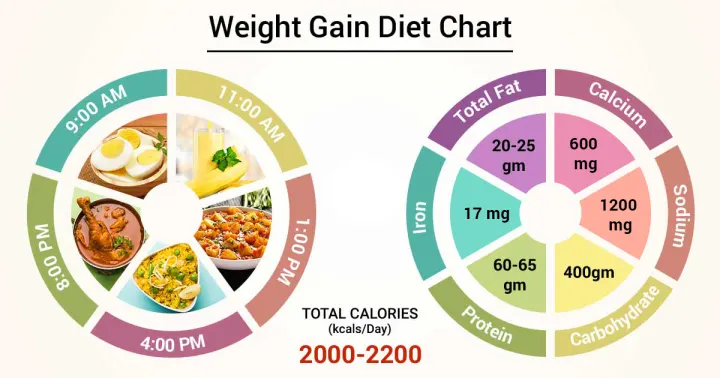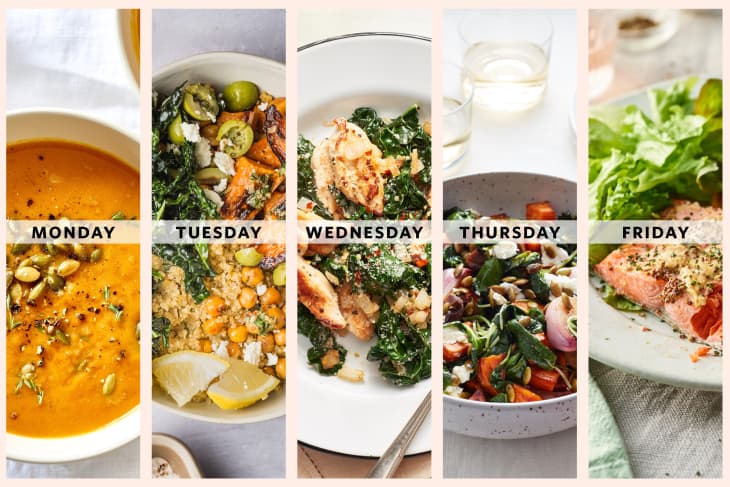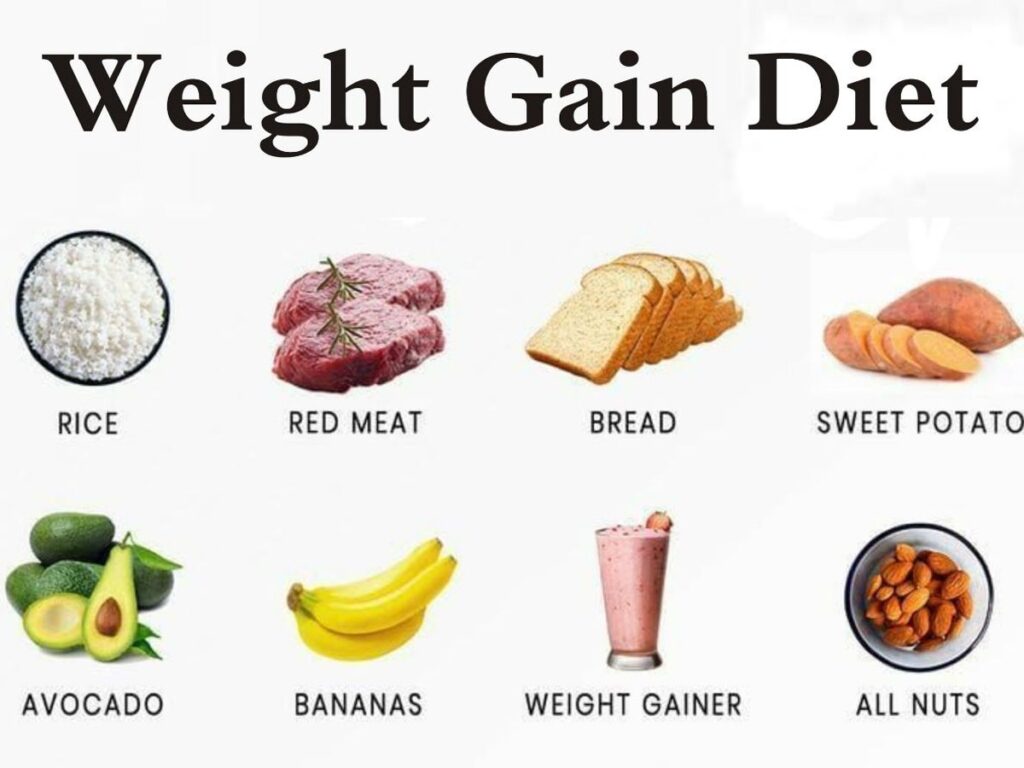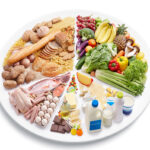Gaining weight means putting on extra pounds, and it can happen due to increased muscle mass, added fat, more fluids, or other factors. Sometimes, weight gain might be a sign of an underlying health issue.
What are the risks of being Underweight?
Nutritional deficiencies:
- Underweight individuals may lack essential nutrients, leading to issues like anaemia due to insufficient iron intake.
Fertility problems:
- Severe underweight conditions may disrupt menstruation, causing menstrual cycles to stop, impacting fertility for those trying to conceive.
Weakened immune system:
- Underweight individuals may experience a compromised immune system, making them more susceptible to infections and illnesses.
Skin, hair, or teeth problems:
- Nutrient deficiencies, common in underweight individuals, can manifest in issues like dry skin, thinning hair, or dental problems.
Fatigue:
- Inadequate consumption of energy-providing foods can result in increased fatigue, making daily tasks more challenging.
Osteoporosis:
- Bone health may be compromised in underweight individuals, particularly if calcium intake is insufficient, leading to conditions like osteoporosis, characterized by brittle bones prone to fractures.
Do’s & Don’ts For Weight Gain
Get proper sleep and rest
Ensure adequate sleep and rest to support overall health and well-being.
Eat often and increase your calorie intake
Consume frequent meals to increase calorie intake, aiding in weight gain.
Drink milk and include eggs in your diet
Incorporate milk and eggs, rich in proteins and essential nutrients, into your daily diet.
Do the right kind of workouts to gain muscle mass
Engage in workouts focused on building muscle mass for healthy weight gain.
Eat protein first and vegetables last in your meals
Prioritize protein-rich foods in your meals, considering them before vegetables.
Include creatine supplements in your routine
Consider adding creatine supplements to your routine to support muscle growth.
Reduce stress from your life
Manage stress levels as high stress can impact weight and overall health negatively.
Don’t include carbonated drinks, alcohol, packaged foods in your diet
Avoid carbonated drinks, alcohol, and processed foods, opting for healthier choices to support weight gain in a sustainable way.
Tips Of Weight Gain Diet
- High-Calorie Food
- Consume a calorie-rich diet, consulting a nutritionist for personalized calorie goals based on factors like age, gender, metabolism, body composition, and activity level.
- Nuts and Seeds
- Include polyunsaturated fats from nuts and seeds like pistachios, almonds, walnuts, cashews, sunflower seeds, flax seeds, and pumpkin seeds. Nut butter is another calorie-dense option.
- Healthy Carbs
- Regulate carbohydrate intake, opting for healthy sources like whole grains, fruits, and vegetables while avoiding high-sugar foods and refined grains.
- Protein-Rich Diet
- Ensure sufficient protein intake (1.5-2 grams per kg of body weight) to prevent muscle loss and boost metabolism. Include sources like chicken breast, turkey, nuts, legumes, beans, fish, eggs, and milk.
- Stress Reduction
- Manage stress to prevent weight loss associated with stress-induced factors like skipped meals, digestive problems, and intense exercise. Develop a support network, practice meditation, and ensure regular nourishing meals.
- Strength Training
- Incorporate strength training exercises to target multiple muscle groups and gain lean muscle mass. Seek guidance from a fitness coach for a tailored plan, including exercises like pushups, lunges, and squats.
- Adequate Sleep
- Prioritize good sleep for overall well-being and muscle recovery, aiming for 7-9 hours of quality sleep per night.
Weight Gain Diet Chart

- Healthy Lifestyle: Follow a healthy lifestyle with a focus on nutritious food and regular exercise.
- Avoid Soda: While soda may contribute to weight gain, it can harm your overall health.
- Balanced Weight Gain: Aim for a balanced increase in muscle mass and subcutaneous fat, avoiding unhealthy belly fat.
- Prevent Health Issues: Normal-weight individuals can also face health problems, so prioritize overall health.
- Healthy Diet: Consume mostly healthy foods and follow a balanced diet for weight gain.
- Caloric Surplus: If aiming for slow weight gain, target 300-500 calories above your daily burn; for faster gain, aim for 700-1000 calories.
- Use Calorie Calculator: Estimate your calorie needs, but be flexible as individual requirements vary.
- Track Calories Initially: Count calories for the first few days/weeks to understand your eating patterns.
- Full Healthy Diet Plan: Consider following a comprehensive healthy diet plan for overall physical well-being.
Weight Gain Diet Plan

7-Day Weight Gain Diet Plan
| Day | Meal |
|---|---|
| Sunday | Breakfast: 2 egg brown bread sandwich + green chutney + 1 cup milk + 3 cashews + 4 almonds + 2 walnuts Mid-Meal: 1 cup banana shake Lunch: 1 cup arhar dal + 1 cup potato curry + 3 chapatti + 1/2 cup rice + 1/2 cup low fat curd + salad Snack: 1 cup strawberry smoothie + 1 cup vegetable poha Dinner: 1.5 cup chicken curry + 3 chapatti + salad |
| Monday | Breakfast: 3 onion stuffed parantha + 1 cup curd + 3 cashews + 4 almonds + 2 walnuts Mid-Meal: 1 cup mango shake Lunch: 1 cup moong dal/ chicken curry + 1 cup potato and caulifllower vegetable + 3 chapatti + 1/2 cup rice + salad Snack: 1 cup pomegranate juice + 2 butter toasted bread Dinner: 1 cup beans potato vegetable + 3 chapatti + salad |
| Tuesday | Breakfast: 3 paneer stuffed besan cheela + green chutney + 1 cup curd + 3 cashews + 4 almonds + 2 walnuts Mid-Meal: 1 apple smoothie with maple syrup Lunch: 1 cup masoor dal + 1 cup calocasia + 3 chapatti + 1/2 cup rice + 1 cup low curd + salad Snack: 1 cup tomato soup with bread crumbs + 1 cup aloo chaat Dinner: 1 cup carrot peas vegetable +3 chapatti + salad |
| Wednesday | Breakfast: 1.5 cup vegetable bread upma + 1 cup milk + 3 cashews + 4 almonds + 2 walnuts Mid-Meal: 1 cup ripe banana with 2 tsp ghee Lunch: 1 cup rajma curry + 1 cup spinach potato + 3 chapatti + 1/2 cup rice + salad Snack: 1 cup vegetable juice + 1 cup upma Dinner: 1.5 cup parwal vegetable + 3 chapatti + salad |
| Thursday | Breakfast: 2 cucmber potato sandwich + 1 tsp green chutney + 1 orange juice + 3 cshews + 2 walnuts + 4 almonds Mid-Meal: 1 cup buttermilk + 1 cup sweet potato chaat Lunch: 1 cup white chana/ fish curry + 3 chapatti + 1/2 cup rice + salad Snack: 1 cup almond milk + banana Dinner: 1 cup cauliflower potato vegetable + 3 chapatti + salad |
| Friday | Breakfast: 2 cup vegetable poha + 1 cup curd + 3 cashews + 4 almonds + 2 walnuts Mid-Meal: 2 cups watermelon juice Lunch: 1 cup chana dal + 1 cup bhindi vegetable + 3 chapatti + 1/2 cup rice + salad Snack: 1 cup sprouts salad + 2 potato cheela + green chutney Dinner: 1 cup peas mushroom vegetable + 3 chapatti + salad |
| Saturday | Breakfast: 3 vegetable suji cheela + 1 cup strawberry shake + 4 cashews + 4 almonds + 3 walnuts Mid-Meal: 1 cup coconut water + 1 cup pomegrate Lunch: 1 cup mix dal + 1 cup soybean curry + 3 chapatti + 1/2 cup curd + salad Snack: 1 cup fruit salad + 4 pc vegetable cutlets + green chutney Dinner: 1 cup karela vegetable + 3 chaptti + salad |
Foods To Eat And Avoid In A Weight Gain Diet
Foods To Eat
- Protein:
- Essential for improving strength, immune system, and stabilizing energy levels.
- Crucial during illnesses like cancer to counteract muscle breakdown.
- Carbohydrates:
- Opt for complex carbohydrates like sweet potatoes, porridge oats, and whole grains.
- Processed slowly, providing sustained energy, especially when paired with protein-rich foods.
- Fats:
- Excellent calorie source and enhance the taste of dishes.
- Consider adding butter, cream, full-fat Greek-style yogurt, or healthy oils like olive or avocado oil to improve overall calorie intake.
Foods To Avoid
- Junk Food:
- Avoid processed foods like biscuits, chips, pastries, candies, and ice cream.
- Opt for healthier snacks such as fruits and nuts to avoid empty calories and preservatives.
- Refined Carbs:
- Choose whole wheat flour, raagi, jowar, bajra, oats, or multigrain flour over refined flour for better nutritional value.
- Carbonated Drinks:
- Cut out sugary aerated beverages to reduce liquid calories and control appetite.
- Opt for healthier alternatives like fresh fruit juices, tender coconut, and smoothies.
- Alcohol:
- Limit alcohol consumption as it contributes to abdominal obesity.
- Alcohol can increase hunger, lead to poor food choices, and affect digestion and metabolism.



